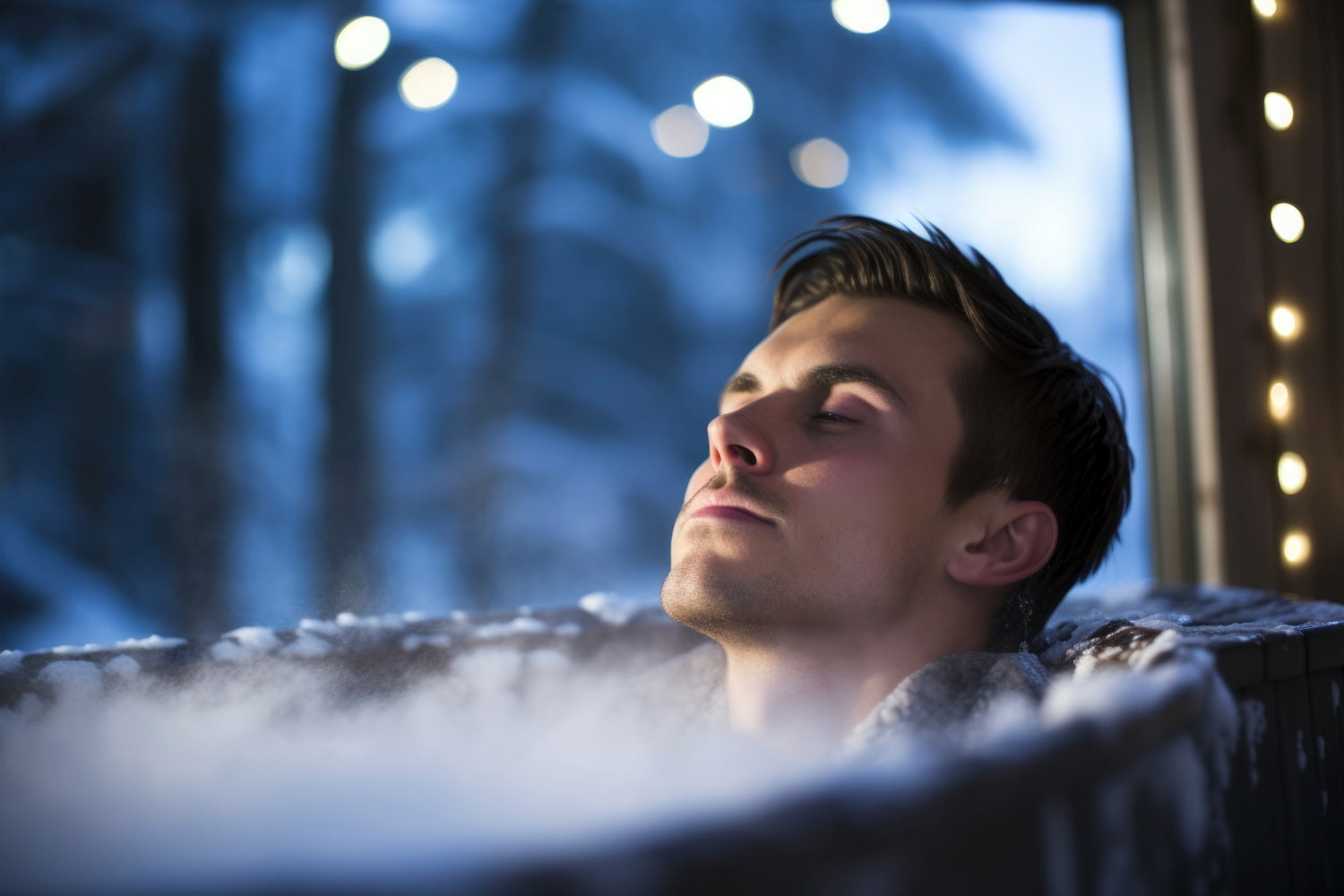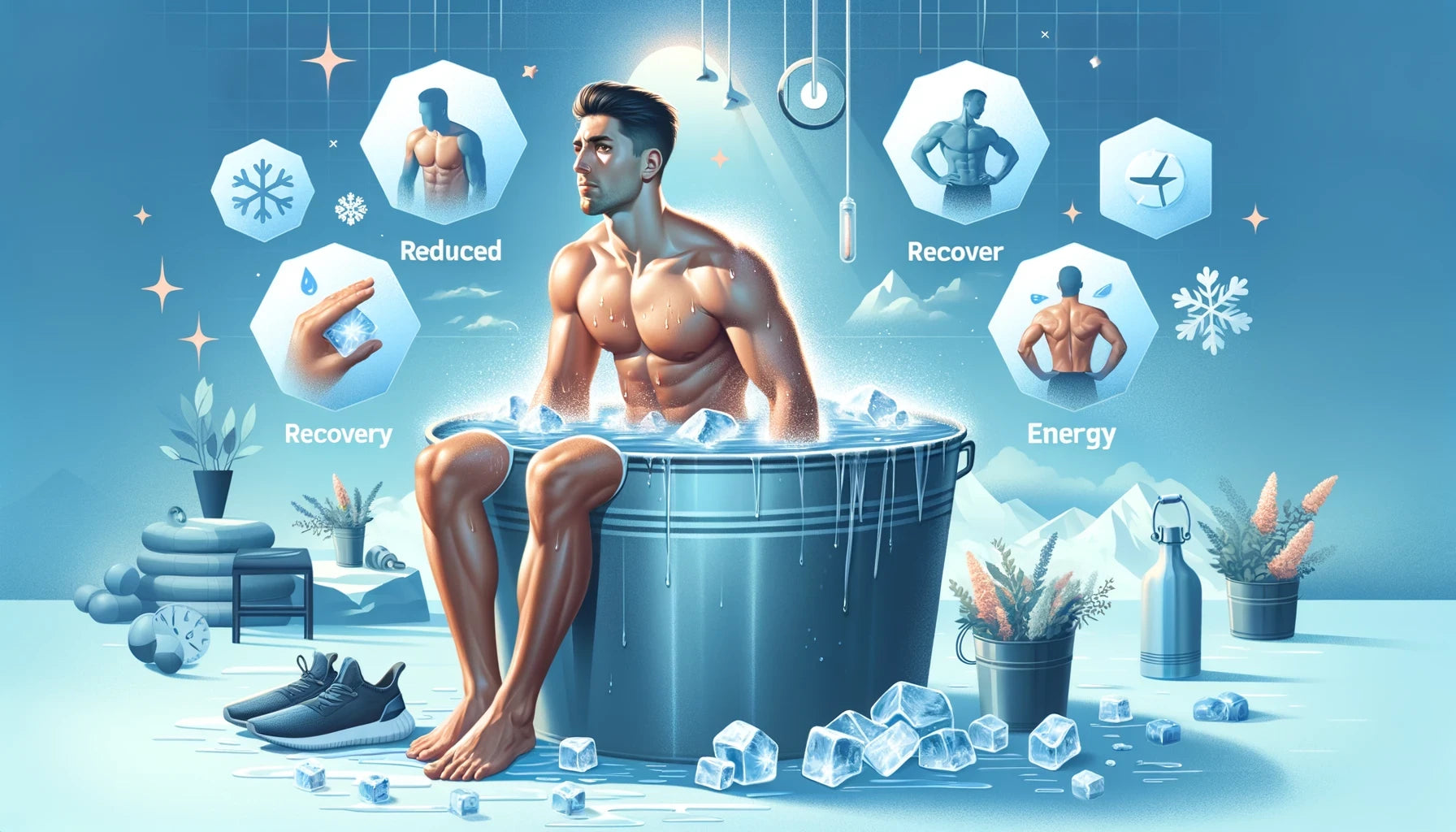Everybody who wants to try an ice bath has a reason or hope for how it will benefit them. While most individuals, including first-time people and professional runners, take up cold water therapy to aid them with muscle recovery, can ice baths help you sleep?
So, let's talk about how you can enjoy a good eight hours of sleep every night with an ice-cold bath before bed. We will examine the parasympathetic nervous system, slow-wave sleep, and more. Read on to learn more!
Do Ice Baths Before Bed Help Sleep?
For certain people, taking an ice bath before bed is wonderful for a good night's sleep. The ice bath's low temperature releases melatonin, which has a calming effect and reduces inflammation. These factors can result in better-quality sleep.
However, it is crucial to note that individual responses to ice baths may vary, and some people may find it more beneficial than others in terms of aiding sleep or improving sleep quality.
Reasons Why Ice Baths Before Bed Can Be Beneficial For Sleep
Now that we've covered how ice baths may improve your sleep let's dig deeper into the precise reasons for these advantages. Understanding the mechanics at work will help you see why a pre-bedtime dive could be the key to a good night's sleep.
1. Ice Baths and Melatonin
Melatonin is famously called the 'sleep hormone,' which is what it does in the real sense. Melatonin regulates the sleep cycle, which, in simple language, means sending a command to the body to rest.
Ice baths can help enhance melatonin levels in the body by stimulating natural cold stress, which subsequently triggers the release of melatonin. Cold exposure stimulates the body's sympathetic nervous system and causes the rapid release of norepinephrine, which in turn can cause the production of melatonin.
2. Parasympathetic Nervous System
The parasympathetic nervous system, a part of the autonomic nervous system, manages bodily functions beyond our conscious control. Ice baths can stimulate this system through the "diving reflex" or "cold shock response."
The parasympathetic nervous system kicks in when you immerse your body in cold water, especially up to your neck. This response typically happens within one to three minutes as the body tries to conserve energy.
Many athletes use ice baths to combat this energy drain and other issues. Studies also show a link between ice baths and improved sleep quality.
3. Increased Slow-Wave Sleep
Another stage of the sleep cycle is slow-wave sleep, which usually occurs during the early part of the night’s rest. This is the deepest relaxation and restoration the human body can attain at any given point.
Recent studies have revealed that taking an ice/cold bath before bedtime can benefit slow-wave sleep. Essentially, this is the most critical part of daily recovery and allows the body to repair and regenerate the damage done within the day.
Since the ice bath reduces body temperature, the user can feel relaxed and effortlessly achieve slow-wave sleep. Therefore, a bubble bath can help improve sleep.
Tips For Cold Therapy And Sleep
Here are some tips for maximizing the benefits of a cold water bath before sleep to boost recovery.
1. Take a Short Plunge:
You don't need to go on five-minute-long ice bath rides, though. The researchers found an exposure as short as six minutes boosted the sleep-enhancing effects of evening levels of bright light dose. For example, just dunking your body into cold water for 10-15 minutes can lower your core temperature sufficiently to improve the quality of sleep you get.
2. Ensure Your Bedroom is Cold:
Many ice bath users tend to neglect the temperature of their room after they have been cold plunged. However, if you take an ice bath and then go to bed in a warm room, it may counteract the sleep-enhancing benefits of your cool-down! There are only a few seconds left. If you can keep the room around 15–20 °C, it is best for sleeping, so avoid reaching above that temperature.
How Long Before Bed Should I Take An Ice Bath?
Timing is also important if you get all the sleep benefits possible from an ice bath. However, at the right time of day, cold exposure can also increase relaxation and improve sleep quality.
It can boost adrenaline and stress hormones, helping to increase alertness and the sharpness of your senses. So, if you're planning on an ice bath right before sleep, it's probably not going to be all that useful.
Instead, allow your body to relax after the first rush of adrenaline. This period usually occurs 1–2 hours after completing cold water therapy. Further, planning your ice bath at least 1-2 hours before you lie down to sleep should help lead to deeper and more restful sleep.
Conclusion:
You read it right; per our recently drawn logic, we believe these chill tubs are becoming famous for regaining muscle and helping you sleep better. Cold temperatures make your body produce the hormone melatonin, which helps you relax and reduce inflammation, which, in turn, improves sleep.
If you have ice baths to stimulate the parasympathetic nervous system while increasing slow-wave patterns, your body will have more opportunity for restorative sleep. Timing your body to go from being on high alert to coming down off that hyper-active state will be the ultimate solution to receiving the benefits and having a good night's sleep in an ice bath!




Leave a comment
This site is protected by hCaptcha and the hCaptcha Privacy Policy and Terms of Service apply.